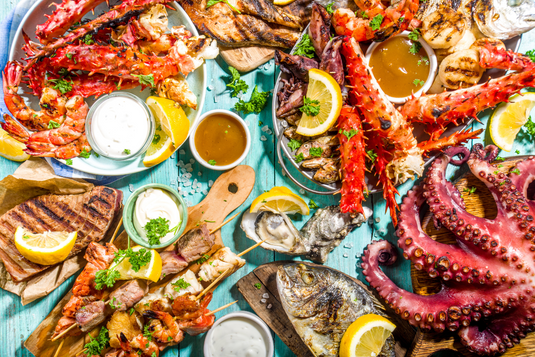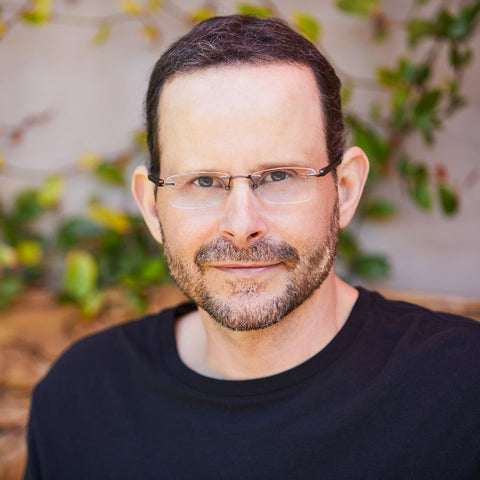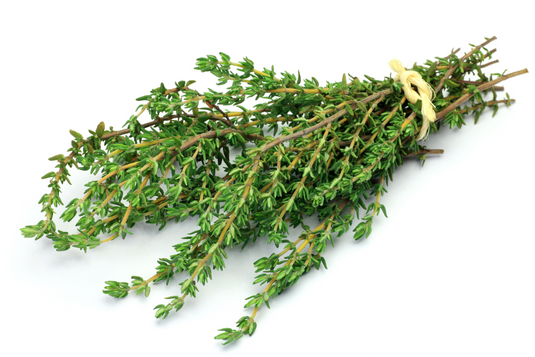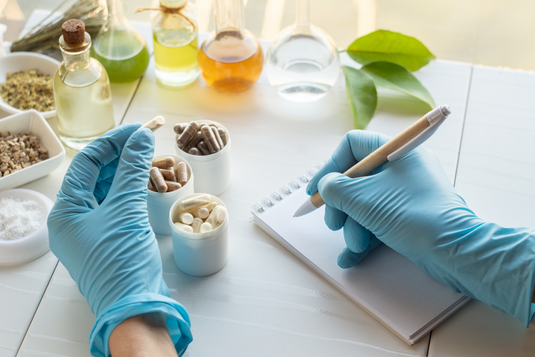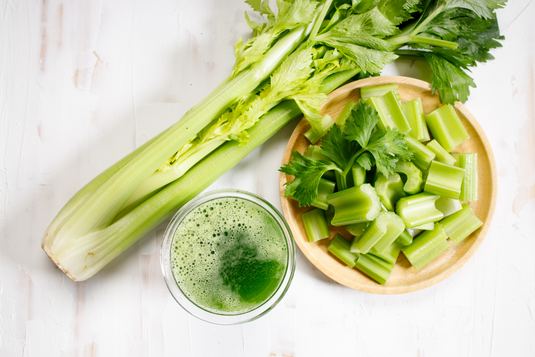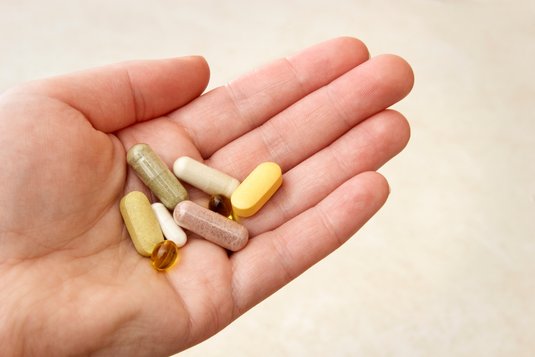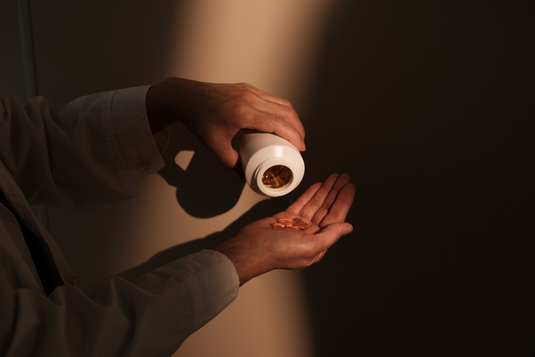All fish and seafood (except salmon, trout and sardines)
As already mentioned, there are varieties of fish that contain lower levels of toxic heavy metals such as mercury. However, there are other toxins in seafood that we should be careful about and prevent from accumulating in the body – especially during a cleanse. However, we don't want to sabotage the detox by adding new toxins.
What are these other toxins? First on the list are dioxins: a long-known industrial waste. Dioxins are already contained in everything, and their traces (sometimes in the lowest possible quantities) are found in all foods. Higher amounts of dioxins are observed in fish. The reason we should be concerned is that dioxins lower our immune system because a large part of our immune system is located in the lymphatic system, and that's where dioxins accumulate and collect when they first enter our body. There, dioxins end up making it difficult for our lymphocytes to work; dioxins act like a smokescreen or snowstorm that slows down and weakens the lymphocytes in our lymphatic system. They are also an aggressive type of free radicals that are destructive to the cells in our body.
Fish happens to be high in dioxins because the ocean and freshwater sources are where most of the dioxins float. We will not help the cleansing if we load the blood with these toxins. As you already know, the immune system needs to be strong and reliable during a cleanse.
Dioxins are carcinogenic because they feed aggressive viruses that can turn into cancer cells. This is another reason to avoid most fish and other seafood when trying to cleanse and heal.
Salmon, trout and sardines differ in part because they are higher in micronutrients than other fish. This does not mean that you should eat salmon, trout or sardines every day, unless you are really into fish. If you rely on her, these three are the best. On the other hand, if you only eat fish for the beneficial fatty acids, you can get them with seaweed.
Another reason to choose salmon, trout and sardines over other fish and seafood is that they are lower in mercury, especially sardines. This does not mean that they do not contain any mercury. Don't think salmon is farm raised, contains no mercury, dioxins or radiation from the ocean. Farmed fish has other concerns, such as antibiotics and antifungals used to protect the fish from developing fungal and bacterial infections, so it is no safer. Better to choose wild-caught salmon, trout and sardines if possible – this way you'll avoid antibiotic and antifungal residues, which can also contain toxic heavy metals.
And finally, nuclear waste and wastewater from nuclear power plants have been polluting oceans and rivers for decades. Sardines, salmon, and trout are better options than other fish and seafood because they are lower in radiation—especially sardines, because of their size.
This does not automatically mean that all juvenile fish are lower in pollution. Some small fish, such as mackerel, are oilier and may contain more mercury. Why do oily fish and mercury go together? For the same reason why the fat cells in our body become intoxicated and loaded with heavy metals like mercury. Something that is still unknown to medical research and science is that toxic heavy metals like mercury dissolve and disperse in fat. This happens because the acids in the fat cause a rapid oxidation process of the mercury, and in turn the metal expands and saturates the entire fat cell, making it even more toxic. Although salmon may be fatty and larger, it is not the fattiest and is one of the healthiest the ocean has to offer thanks to its micronutrients. If you want to eat some fish while trying to cleanse, let it be wild-caught salmon, sardines or freshwater trout.
When it comes to fish oil supplements, don't be fooled by ads that say "mercury-free." This statement is false. There is no technology that can completely rid fish oil of mercury residues. The essence of mercury still remains in so-called pure fish oil, and it can be even more toxic than eating a can of tuna. The removal process creates a powerful homeopathic charge in the mercury essence that remains in the fish oil. It is now in a much more methylated state and this methylmercury can travel deeper into the cellular tissue of the entire body. As an alternative, Anthony William recommends the Vegan Omega 3 (EPA and DHA) dietary supplement, which does not contain fish products.
